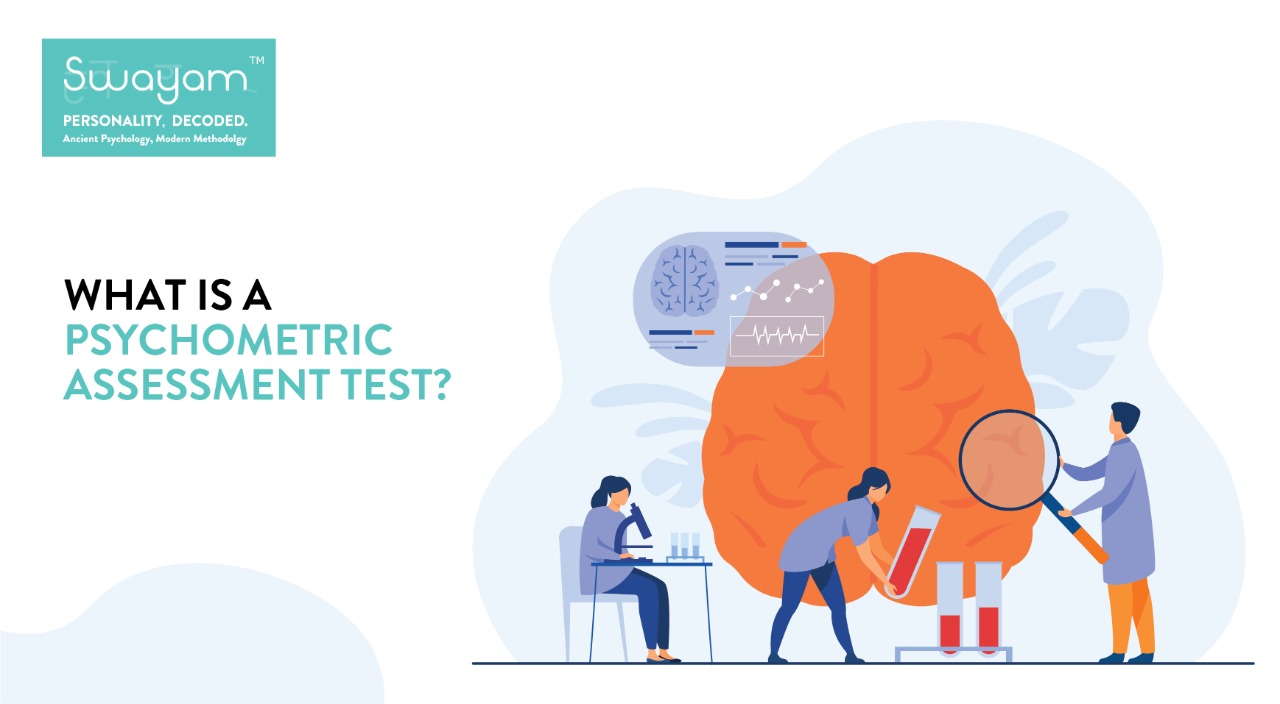
By measuring qualities including IQ, values, and behaviours, psychometric testing examines an individual’s appropriateness for an organization’s needs. Tools used in psychometrics fall into two major groups. Candidates’ abilities are assessed in the first category, while personality traits are explored in the second. Ability testing (also known as aptitude testing) can take various forms, including numerical exams, verbal reasoning tests, situational judgment tests, spatial perception tests, and error-checking tests.
Personality tests, often known as professional assessments, measure a candidate’s interests, values, behaviours, and motives to determine their appropriateness.
Potential of Vedic Science in establishing psychometric assessment
Many theories help in understanding the personality of an individual. But Indian Vedic 5-element theory gives a whole new perspective to psychometric assessment. As per the 5-element theory, that is, Earth, Water, Fire, Air, and Ether combine to give rise to a person’s physiology and psychology.
The combinations of these elements give rise to three natures (Tridoshas) of creative, logical, and methodological behaviour. These elements combine at the psychological level to forms the three attributes (Trigunas) that show harmonious, passionate, and lethargic personalities. Thus, the combination, as well as permutation of these three natures and attributes, forms an individual’s personality, and it can be assessed too.
What are the types of psychometric testing?
Aptitude/ability testing and personality/behaviour testing are the two primary types of psychometric instruments. This is typical in assessment centres when companies are trying to narrow down many applications or schools want to assess their students.
Several aptitude tools are used to conduct these tests and they areas –
- Numerical – It’s all about statistics and how the person handles them.
- Verbal – problem-solving inside textual excerpts
- Inductive – Test of systematic thinking skills
- Diagrammatic – using sequences to solve problems
- Logical – testing for logical thinking
- Error checking – s Finding and correcting errors in the given information
Why are psychometric tests essential?
Psychometric tests play an important role in today’s era because of the competition. It is widely used in the recruitment processes by human resource professionals and also used in academics.
Recruitment can be difficult for companies in the professional job market because of its high level of competition. Avoiding the costly and time-consuming mistake of hiring someone who appears to be a safe option but has trouble adjusting to the team or, even worse, disrupts it.
Therefore, each candidate has an equal probability of success based on the results of psychometric testing. It also eliminates the possibility of interviewers exhibiting unconscious prejudice and ensures that candidates are treated equally and choose for the company’s benefit.
Psychometric tests provide numerous benefits for students trying to decide on a career path since they reveal a person’s talents and abilities and guide them in choosing a job that matches their interests. Students don’t have to spend a lot of time researching their talents, and they don’t have to read a lot of career-related periodicals. Psychometric exams are now structured to focus on answering questions that students have requested. Most good job counsellors also depend on these psychometric tests to propose the best career possibilities to their candidates.
Psychometric tests are now used in schools, colleges to assess the personality and behaviour of students. It also helps students in their career guidance by exploring their strengths and weaknesses. Before making life-changing educational decisions by the students, psychometric tests are conducted to demonstrate a person’s cognitive ability. Psychometric exams, if done correctly, might indicate a student’s suitability for a specific field of study.
What are the Strengths of Psychometric Testing?
- It is objective method of assessing people and their behaviours without any subjective biases.
- It helps in understanding how people will behave at the workplace after hiring.
- It helps the recruiter to find the leadership quality in the applicant.
- General intelligence of a candidate can be tested by using this assessment.
- It helps in interpreting the candidate’s emotional behavior and relationship with others.
- It also ensures to assess how a person will behave when it comes to working pressure.
- Psychometric tests save the recruitment time, provide consistency throughout the process and highlight the strength and capabilities.

